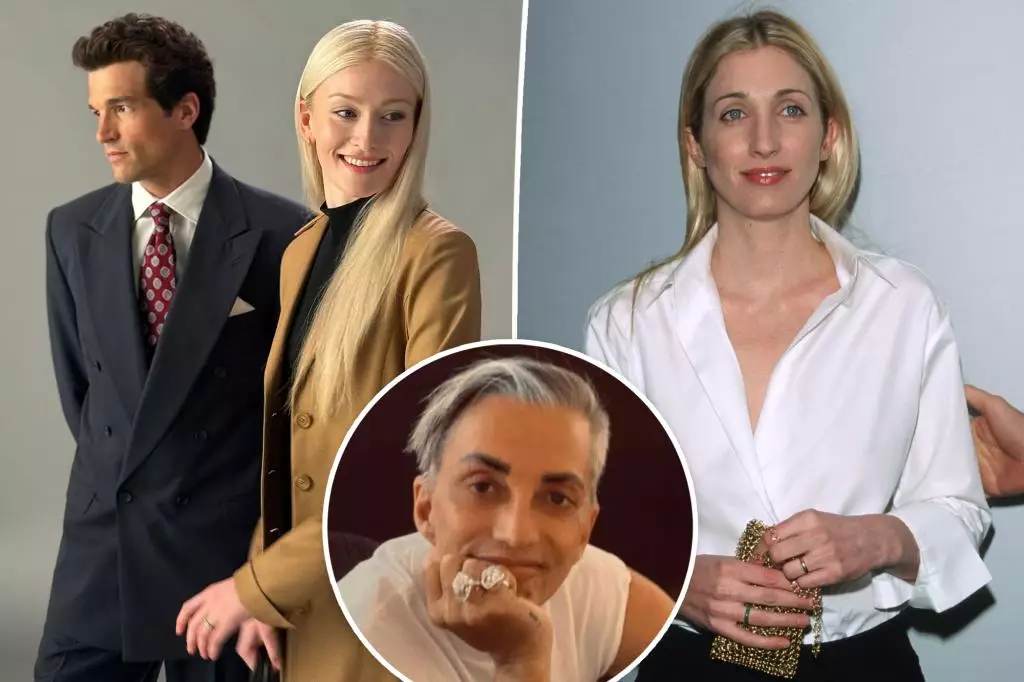When we think of iconic style, few names resonate quite like Carolyn Bessette-Kennedy. Widely regarded as a feminine style archetype, her elegant, minimalist aesthetic continues to inspire fashion enthusiasts and aspirants alike. Her charisma, coupled with her refined sense of fashion, has solidified her status as a style icon. But as we await Ryan Murphy’s much-anticipated series, “American Love Story,” which centers on Bessette-Kennedy and John F. Kennedy Jr., one cannot help but feel an urgent need to preserve the essence of her unique style.
The initial promotional material from the show sparked a wave of criticism among fans and fashion experts alike. Social media erupted with discussions surrounding the portrayal of Bessette-Kennedy’s signature looks, prompting conversations about authenticity in depictions of cultural icons. When Sarah Pidgeon was photographed in costume, styled with a drab camel overcoat and overpoweringly light hair, many took to platforms like Twitter and Instagram to express their dismay. This response highlights a deeper concern: can we capture the essence of a true icon while also remaining faithful to the historical narrative?
The Hair Controversy: An Anatomy of Misrepresentation
One of the most contentious points raised by fans was the depiction of Bessette-Kennedy’s hair. Hair colorist Brad Johns, who was intimately familiar with Bessette-Kennedy, shared his disappointment regarding the inaccurate representation of her hair. He expressed the necessity of showcasing the color’s depth and richness, a reminder that sometimes, even the smallest details can lead to a mockery of style.
Johns noted how Bessette-Kennedy preferred a warm, golden hue over ashy tones that could render a woman dulled and lifeless. His insightful comments reveal that hair is far more than mere aesthetics; it’s a fundamental aspect of identity. In the beauty industry, hair color is a vehicle for self-expression, and misrepresenting that can taint the overall narrative of who a person was and what they represented.
The discrepancy not only sparked outrage but became a conversation starter about how much historical accuracy should be sacrificed for the sake of creative liberty in televised storytelling. In a cultural landscape where representation matters significantly, viewers are rightfully demanding that any portrayal captures the essence of the individuals being depicted, specifically when they become pivotal figures in popular culture.
Ryan Murphy’s Vision and the Quest for Authenticity
Responding to the backlash, Ryan Murphy emphasized that what was shown was never intended to be the final product. He reassured fans that meticulous work is ongoing to achieve a faithful representation of Bessette-Kennedy’s wardrobe. Murphy’s approach sheds light on a fascinating dichotomy—an acknowledgment of oversight paired with a commitment to authenticity.
He has gone so far as to invite dedicated fashion bloggers to engage with the show’s costume design process, signaling a willingness to bridge the gap between creative expression and historical nuance. This integration of expert opinions not only raises the stakes for the project but also invites a broader discourse on what it means to encapsulate an iconic figure faithfully.
Murphy’s acknowledgment of vintage items owned by Bessette-Kennedy, including designer staples from the ’90s, underscores the importance of research in constructing a narrative faithful to the past. The objective of honoring original aesthetics, while allowing room for artistic interpretation, resonates strongly with a generation that elevates authenticity as an ultimate virtue.
The Enduring Impact of Style Icons
The fervor surrounding Carolyn Bessette-Kennedy’s legacy serves as a potent reminder about the lasting impact of fashion on contemporary society. Her ability to transform fabric and color into a language of elegance has inspired countless designers and consumers. While it can be disheartening to see any misrepresentation of such a beloved figure, it offers a critical chance to engage with broader themes about culture, identity, and the power of storytelling.
As we navigate the complexities of representation in media, the approach taken by productions like “American Love Story” will undoubtedly influence public perception towards similar biographical narratives. The ultimate goal should not merely be to tell a compelling story, but to do so with a fidelity that resonates with those who admired and continue to be influenced by these iconic personas.
We live in a time filled with opportunity for dialogue and understanding, where the aesthetics of the past are celebrated alongside critical examination of how they are presented. In paying homage to Carolyn Bessette-Kennedy, may we strive not just for beauty but for a truth that honors her remarkable legacy.

